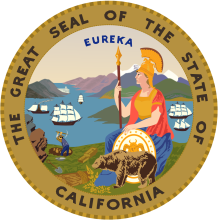Joey Wender and the Treasury's Capital Project Funds - Episode 551 of the Community Broadband Bits Podcast

This week on the podcast, Christopher speaks with Joey Wender, Director of the Capital Projects Fund (CPF), U.S Department of the Treasury. Joey administers the $10 billion fund targeted to help close the digital divide.
Joey and Chris discuss the flexibility of CPF funding and how it allows states to tailor their plans to their own needs. The two also talk about the importance of replenishing funding for the Affordable Connectivity Program (ACP) and how it’s critical to take action on this now, before the fund actually runs out.
This show is 22 minutes long and can be played on this page or via Apple Podcasts or the tool of your choice using this feed.
Transcript below.
We want your feedback and suggestions for the show-please e-mail us or leave a comment below.
Listen to other episodes here or view all episodes in our index. See other podcasts from the Institute for Local Self-Reliance here.
Thanks to Arne Huseby for the music. The song is Warm Duck Shuffle and is licensed under a Creative Commons Attribution (3.0) license.


